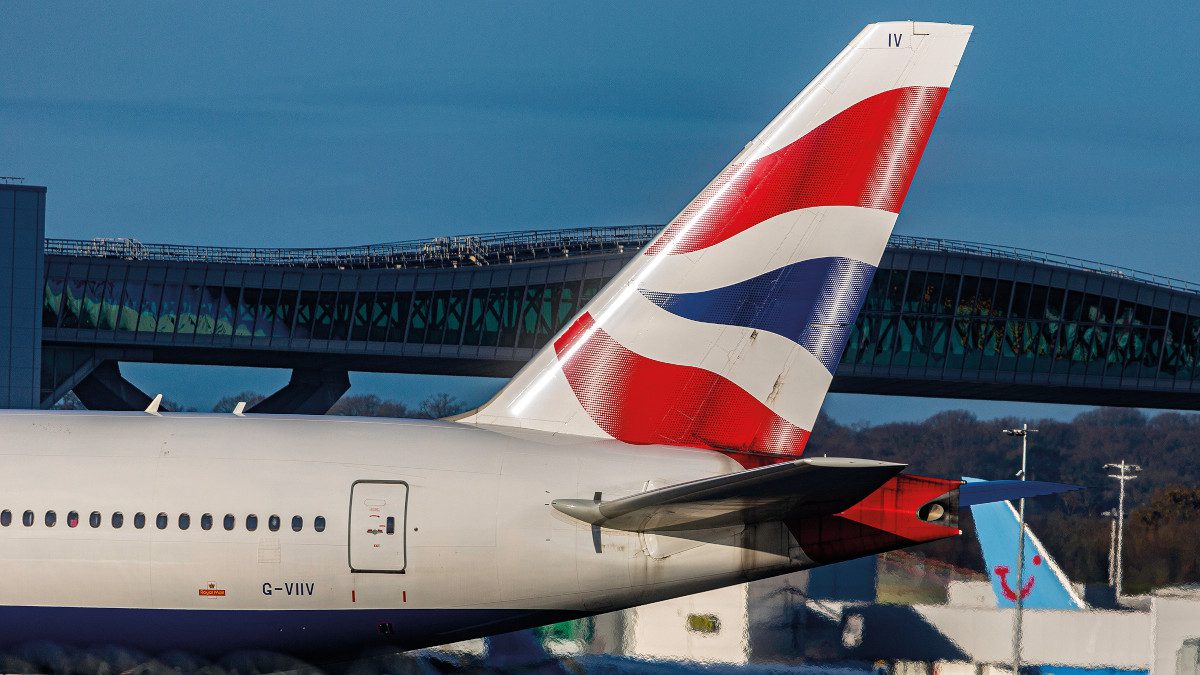
A new “Jet Zero Strategy” seemingly commits UK domestic aviation to achieving net zero emissions by 2040, and for all airports in England to be zero-emission by the same year.
Announced at Farnborough International Airshow on 19 July, the guilt-free flying plan includes “a plan for the industry to stay below pre-pandemic levels of carbon emissions through measures focused on everything from delivering system efficiencies to new technologies, with progress monitored annually”.
Aviation is currently responsible for around 2.5% of global carbon dioxide (CO2) emissions. It contributes £22 billion to the UK economy and is set to grow as it recovers from the events of 2020. The announcement said the Jet Zero Strategy “provides the tools to help future-proof the aviation sector, deliver guilt-free air travel, and create thousands more green jobs around the country”.
“The whole economy will benefit as new, cutting-edge industries develop, and new infrastructure is built to meet our ambitious targets, including the Government’s commitment to having at least five commercial scale SAF plants under construction in the UK by 2025.”
Transport Secretary Grant Shapps said: “We want 2019 to be remembered as the peak year for aviation emissions. From now on, it should all be downhill for carbon emissions – and steadily uphill for green flights.
“The UK is setting an example of the ambition needed to tackle climate change, and the Jet Zero Strategy provides a clear path to building a greener aviation sector for generations to come.
“Rather than clipping the sector’s wings, our pathway recognises that decarbonisation offers huge economic benefits, creating the jobs and industries of the future making sure UK businesses are at the forefront of this green revolution.”
John Foster, CBI Policy Unit Director, felt the strategy announcement provided “clear signs to business that the UK is committed to scaling up net zero aerospace and aviation technologies.”
But rapid action is now needed, he suggested.
“Regular delivery plan reviews alongside a newly installed Charter will give companies the confidence and focus they need to forge forward with the swift development of new, cutting-edge decarbonisation technologies.”
“Government must now bring forward a price mechanism for the Sustainable Aviation Fuel. By becoming market makers, the UK could unleash investment in first-of-a-kind projects, stimulate economic growth and deliver on the 10% SAF mandate by 2030.
Elements announced on 19 July include a new mandate for at least 10% SAF to be blended into conventional aviation fuels by the end of the decade.
Made from waste materials such as household waste, sewage, or used cooking oil, these fuels offer, on average, greenhouse gas emissions savings of more than 70% compared to conventional fossil jet fuel when fully replacing kerosene.
“SAF is a core part of the Jet Zero Strategy, and from today pioneering projects looking to produce SAF in the UK can bid for a share of the new £165m Advanced Fuels Fund. Building on the progress of the £15m Green Fuels, Green Skies competition, this new funding will help us achieve our aim to have at least five commercial SAF plants under construction in the UK by 2025.”
The six “priority areas” set out by the strategy are:
• Improving the efficiency of the UK’s existing aviation system, from aircraft to airports and airspace. For example, says the government, “we will improve fuel efficiency by 2% every year and are providing a further £3.7m in 2022/23 to support airports to modernise their airspace.”
• Increasing support for sustainable aviation fuels (SAF), by creating secure and growing UK SAF demand through a SAF mandate that will require at least 10% of jet fuel to be made from sustainable sources by 2030 and kick starting a domestic SAF industry, supported by the new £165m Advanced Fuels Fund.
• Supporting the development of zero-emission aircraft, with the aspiration of having zero-emission routes connecting places across the UK by 2030.
• Developing carbon markets and greenhouse gas removal technologies to drive decarbonisation and offset any residual emissions, including by enhancing the UK Emission Trade Scheme (UK ETS).
• Providing consumers with better information so they can make sustainable aviation choices. We will publish a Call for Evidence on our proposal to provide consumers with environmental information at the time of booking air travel in Autumn 2022.
• Increasing our understanding of the non-CO2 impacts of aviation, such as contrails and nitrogen oxides. The effects of these remain uncertain so we will work closely with academia and industry to monitor global developments in this area, increase our understanding, potential mitigations, and explore a means of tracking these emissions.
The Jet Zero Strategy is said to build on the government’s existing strategies for net zero, and transport decarbonisation.
Julie Kitcher, EVP Communications and Corporate Affairs, Airbus, said:
“Decarbonising aviation is a significant challenge, but the Jet Zero Strategy provides a clear goal for the sector whilst driving forward the development of the different technological pathways needed to make net zero aviation emissions by 2050 a reality. The time to act is now. Working together, we will succeed.”
Warren East, CEO of Rolls-Royce plc, welcomed the announcement. “This strategy positions the UK Government as a global leader in the journey towards more sustainable flight and we will play our part in pioneering the technical solutions that will make this vision a reality.”







